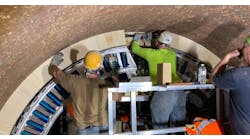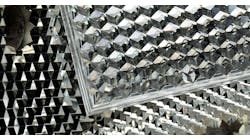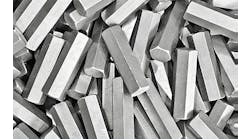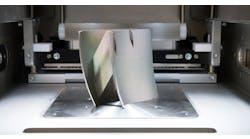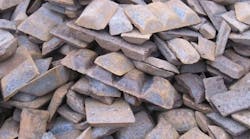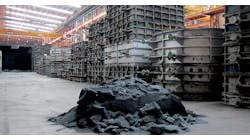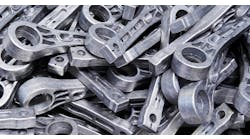A new research project launched by Lightweight Innovations For Tomorrow (LIFT) will seek to develop more cost-effective manufacturing methods for aluminum metal-matrix composites (MMCs), for use in large-scale automotive and aerospace platforms. The two-year program will consider various production technologies as alternatives to hot-isostatic pressing (HIP), including extrusion, near-net-shape HIP, sintering, or thin sheet forming.
LIFT is a “manufacturing innovation institute” operated by the American Lightweight Materials Manufacturing Innovation Institute, a partnership formed in 2014. It coordinates academic and institutional research with likely and/or available industrial partners, with specific development targets for technologies needed to produce parts or systems needed in automotive, aerospace, or other transportation sectors.
Materion Corporation is the primary industrial partner for LIFT’s latest research project. Materion is a producer of beryllium and specialty alloys, and two types of metal-matrix composites (MMCs): silicon-carbide reinforced aluminum and aluminum-beryllium.
MMCs are specially formed shapes of metal alloy strategically reinforced with a ceramic or organic material. HIP is the standard production route because metal powders can be compressed into solid materials of specific shape by simultaneous application of isostatic high pressure and high heat.
LIFT and Materion, and other research partners, expect to identify alternative processes that will reduce production time and costs, but preserve the “high specific modulus and strength-to-weight ratio” need to supply aerospace and automotive components. Reduced production costs, it’s believed, would allow MMCs to be specified for current and future aerospace and automotive programs.
“Right now, too much time and money is tied up in a production process which we believe can be improved upon through other methods,” stated Keith Smith, Materion’s v.p. - Technology and Government Business Development at Materion. “By pulling this team of experts together through LIFT, we will explore and refine those new methods to benefit not only our work, but that of the entire industry.”
Other industrial partners for the project are Boeing Corp., Lockheed Martin Corp., and GKN plc, a producer of powdered metals and drivetrain and aerospace parts
Academic research partners include Case Western Reserve University, Pennsylvania State University, the University of Tennessee, and the Massachusetts Institute of Technology. Oak Ridge National Labs is a partner from the federal research sector.
“As a global engineering company serving both aerospace and vehicle manufacturers, we see real potential in powder metal aluminum metal matrix composites for 'lightweighting' in many transportation applications,” stated Alan Taylor, v.p. - Lightweight Technology for GKN Powder metallurgy.
The research will run through 2018. In addition to validating new manufacturing processes through production trials of components defined by the industry partners, the initiative will develop the capacity for high-volume production to meet aerospace and automotive materials demands.
“Helping our members take a ‘lightweighting’ idea that has had some success on a small scale and helping ramp it up to be mass produced on a large scale is at the core of what we do at LIFT,” stated Alan Taub, chief technology officer at LIFT.

